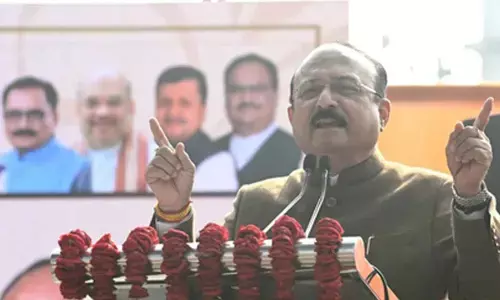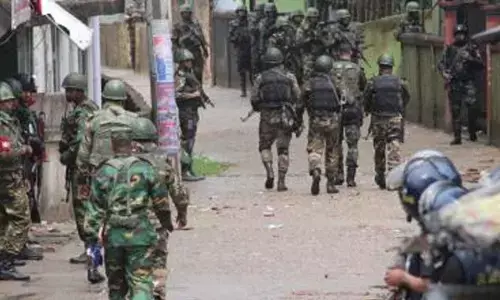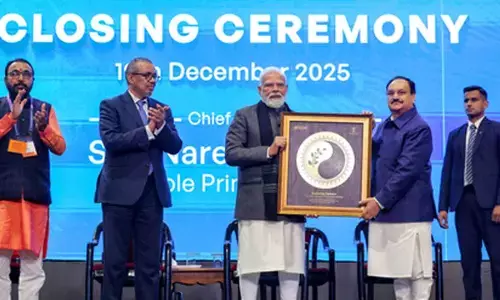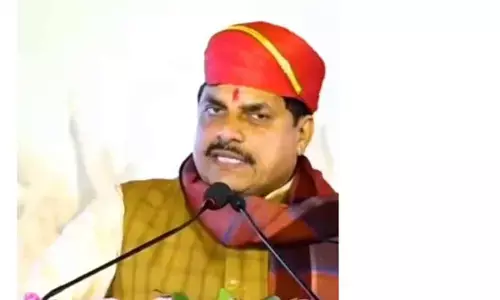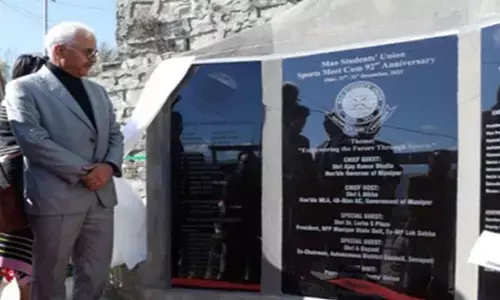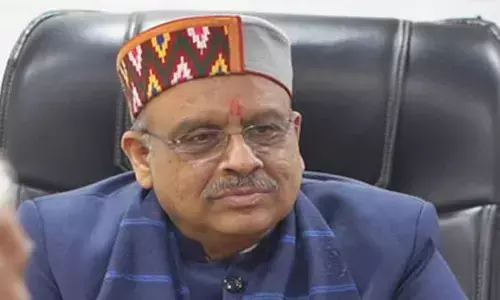MHRD and IITs on collision course again

MHRD And IITs On Collision Course Again. In all probability, the engineering aspirants across the country would have a single exam as the Ministry of Human Resource Development (MHRD) indicated that both JEE Main and JEE Advanced will be merged into one examination.
• Row over common counselling for IITs and NITs
• JEE Main and Advanced to be merged in 2015
• ISEET may be revived by amending Act
In all probability, the engineering aspirants across the country would have a single exam as the Ministry of Human Resource Development (MHRD) indicated that both JEE Main and JEE Advanced will be merged into one examination.
This would really be a heartening development for thousands of aspirants since there has been a strong opposition to the cumbersome two-tier examination, which was introduced a year ago. But the students of 2014 will have to face the same methodology of last year.
Indian Science Engineering Eligibility Test (ISEET), an idea promoted by Kapil Sibal when he was minister for MHRD, is likely to be revived for 2015. “Since the IIT Act needs to be amended for the purpose, it takes some more time,” Ashok Thakur , Secretary of Higher Education told media. The decision to merge was already informed to the seven older IITs, which have planned the two-tier system, Thakur added.
As a precursor to the new admission format, all engineering colleges will have to conduct common counselling for students in 2014, according to the government decision. This is snowballing into a controversy and both MHRD and IITs have shown no signs of compromise.
“For this year, our agenda is that we want to have common counselling,” Thakur said. “We are very keen on joint counselling. That’s the issue and we want to get after them (IITs). Last year, we tried but IIT Delhi (the coordinating IIT) was very adamant,” he averred.
“This concept of two separate counsellings defeats the purpose of a central exam. What we are asking them is to prepare one merit list. The students of many NITs are very good and joint counselling will help the students and engineering schools in not just reducing hassles but will also help to reduce the number of seats falling vacant” Thakur stressed.
But the IITs have a different view saying that it may not yield the desired results. “Earlier, we used to do one round of counselling for admitting students, the government told us to do twice and then three rounds and we have done that. But has the situation improved? I don’t think so. Students take admission and then leave for a better course or leave for a foreign school later. How will you fill up those seats?” H C Gupta, a professor of IIT-Delhi and chairman of the IIT-JEE Advanced exam last year, questioned.
Many professors of seven old IITs have been opposing the common counselling format on the ground that it would defeat the very purpose of two-tier exam.
“If any new government comes, they may take a different view. They may even ask us to continue the two-tier format which has normalisation and percentile forms,” another professor remarked.
There may be no meeting ground on the contentious issue so far and it is expected that HRD Minister MM Pallam Raju would convene a meeting of senior administrators of IIT soon.
About 600 seats at the IITs and the NITs fell vacant in 2012 because of separate counselling that allows a candidate to receive offers from an IIT as well as an NIT at the same time.
Under the current format, the IITs conduct student counselling first, followed by the NITs and other top schools, which are carried out after a month, especially after the Class XII school board results are available. This has been resulting in further waste of time for those who wish to join in NITs, CTFTs and IIITs.
A candidate who gets an offer from an IIT and an NIT hangs on to the IIT seat while waiting for his choice of subject in an NIT. By the time the candidate decides on the final place to join, it is often too late for the colleges to fill up these vacant seats.
Under the proposed common counselling system, a student will get only one choice. If a candidate does not accept it, then he will be given the option to join another institution.
Students have apprehension about the college and course. “If it reduces the number of vacant seats, it’s fine. But if it mars the chances of a student getting a good institution and the course of his choice, then I cannot welcome it,” Jahangir Devalla, an aspirant said.
Certainly, there are many complexities for the merger and the allegations of not providing a level-playing field for all the students across the country may come up again, Dr K Krishna Chaitanya, Director of Nano Academy felt. Bringing parity will be a tough task, he added.
Next Story









